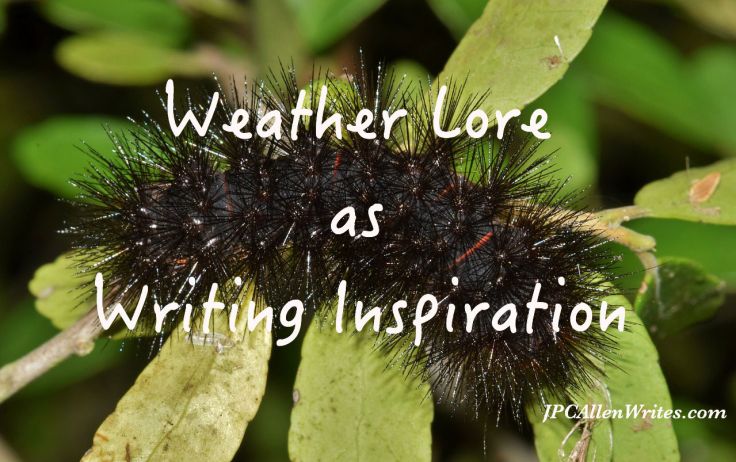 Many of us, at least in North America, have heard the weather lore of seeing how fuzzy the coat of a “woolly bear” caterpillar is to determine how severe the upcoming winter would be. Fuzzier coat, worse winter.
Many of us, at least in North America, have heard the weather lore of seeing how fuzzy the coat of a “woolly bear” caterpillar is to determine how severe the upcoming winter would be. Fuzzier coat, worse winter.
When I was with my grandmother as a kid, and the wind blew hard enough to turn up the paler, underside of the leaves, she always said a storm was coming. I don’t know how scientifically true that observation is, but to this day, when strong winds turn the leaves bottoms up, I check the sky.
Another bit of nature lore I’ve discovered on my own is the return of the turkey vultures to our area. Every year, during the last week of February or the first week of March, the turkey vultures fly in from South America, a sure sign of spring on the way. This year, they returned, and April turned out to be the fourth coldest on record. Although it still felt like winter, it was spring by the calendar. I wonder if it confused the vultures.
If you have a story set in nature, research the area’s weather lore for writing inspiration. It can enhance a character who lives close to nature. Or it may provide a spark for speculative fiction. For example, if I set a story in my home county, I could have my main character notice that the turkey vultures don’t return on time or not at all. It signals some devastating natural disaster.
A great source of these kinds sayings from Southern Appalachia are the Foxfire books. Begun in 1966, Foxfire is a magazine still written by high school students on the heritage of Southern Appalachia. To learn more, visit their website.
In the first book compiled from these magazines is a chapter on “Weather Signs”. Some of the advice it gives for forecasting the weather are:
- The winter will be harsh if:
- “squirrels begin gathering nut early (middle or late September)
- “beaver lodges have more logs.”
- “hoot owls call late in the fall”
- “miller moths hit the screen trying to get it”
- Rain comes when:
- “if the horns of the moon point down.”
- “if leaves show their backs.”
- “if birds fly low.”
Any of these old sayings could spark a story. What if you invent a world where all these sayings are true? People are trained to be weather lore forecasters. The most gifted ones hold powerful positions in government. Or what if just one of the sayings is true? What if “woolly bear” worms really could forecast the weather? Farmers would raise enormous colonies of the worms to sell. Some species would be better than others at predicting weather. Thieves might steal the best kind to sell to businesses that depend on the weather.
What weather signs have your heard of?

My Grandma said the same things about the leaves, but they way she put it was that is the “leaves blow silver” it was going to rain. Same idea, but that was how she told it to me. Thanks for the post!!
“Leaves blow silver” is a much more poetic way of putting it. Thanks for telling me!
Thicker muskrat houses mean a hard winter ahead, and we always heard the “red sky at night, sailor’s delight, red sky in the morning, sailor take warning” from our Grandma. Also, if horseflies bite, it’s going to rain. 🙂
I hadn’t heard the one about horseflies. Thanks for sharing!
I’ve loved Foxfire for a long time, so it was neat to see it mentioned here. Great post!
When I was a kid, my grandparents had a book of Foxfire articles. I liked the one on home remedies.